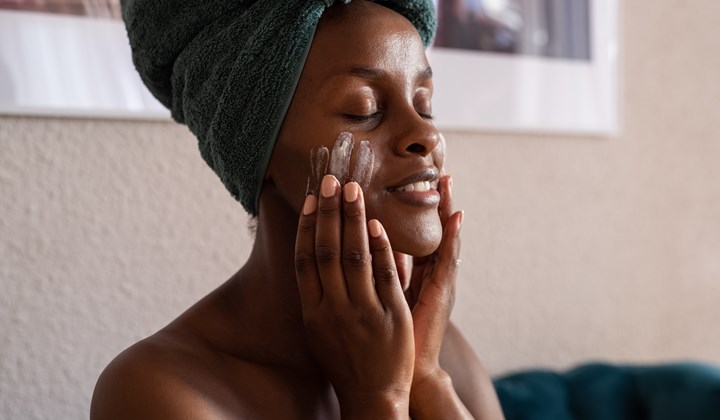
Pharmacy Services
Buy from your local pharmacy
Nearby Locations
Everything you need to know about dry skin
Although dry skin is not a major health problem in most cases, it is definitely worth taking care of. Sufficient care has a positive effect not only on the appearance of dry skin but also on its proper function, the most important function of the skin being to protect the body's internal environment. What are the causes of dry skin in adults and children, and how can this problem be solved?
What are the symptoms of dry skin?
Symptoms of dry skin can range from mild to severe. Dry skin can be itchy, tight, red, and rough to look at and touch. Symptoms can also include things such as scaly skin, cracking of the skin, burning of the skin, wrinkled skin, or peeling of the skin. Mild manifestations of dry skin are very common and are usually not a cause for concern.
What are the causes of dry skin?
There can be several causes of itchy, dry skin, including specific medical conditions or environmental causes. Often the use of aggressive cosmetic products, long hot baths and showers, being in an environment with low humidity, or dehydration of the body are to blame.
Dry skin can also be one of the warning signs of eczema, diabetes, or kidney disease, in addition to being a side symptom of taking certain medications. Certain groups of people are more at risk of dry skin. These include people over 40, people who live in cold climates, and people who smoke.
Dry skin treatment
Dry skin requires proper care. The good news is that with the help of products specially developed for dry and very dry skin, you can restore its healthy condition. The key is to use moisturizing products for dry skin to restore its hydration balance.
You can reach for a variety of body creams for dry skin and moisturizing body lotions. If you suffer from dry skin on hands, choose hand creams for dry hands that are thicker. Similarly, you can reach for foot creams for dry skin, in case your problem is located on your feet. For very dry skin, preferably choose creams and moisturizers that contain urea, lactic acid, or ceramides.

Preventing dry skin
If you want to avoid dry skin and skin irritation, it is advisable to reduce your time in hot water and dry air, ensure adequate fluid intake, avoid cosmetics and detergents containing irritating ingredients, and wear clothes made from natural materials.
Dry skin on the face and how to deal with it
Skin can be dry not only on the body but also on the face. Dry complexion affects a large part of the population and is the result of a reduction in the level of ceramides and fatty acids in the skin and the accumulation of skin cells on the skin surface that dry out the skin, resulting in a visually rough appearance.
If you too are struggling with dry skin on the face, treat your skin by regular cleansing and hydrating it with products designed for dry or very dry skin.
How to choose the best face cream for dry skin?
You may be thinking that it is enough to buy any dry skin moisturizer and apply it regularly on your face. However, it must be said that the more carefully you choose one, the more likely you are to get the results you want.
In the case of dry skin, you'll ideally want a moisturizer that contains ingredients that help keep skin hydrated and help restore the skin barrier integrity and functionality. Ideally, the cream should provide SPF protection and conversely, it should not contain irritating ingredients.

How to get the most out of a face moisturizer for dry skin?
Ideally, you should apply moisturizer at least twice a day on dry skin. You should use a lighter cream for daytime and a thicker one at night. It is optimal to apply the cream when your skin is moist, for example after a bath or shower, so that it is well absorbed into the skin.

Dry skin in newborns and babies
Dry skin, of course, can trouble not only adults, but also the little ones. The skin of babies is very sensitive and is also prone to drying out. Thus, dry skin in the smallest babies is not uncommon.
Most often, dry skin in newborns and babies appears on the face and diaper area. How to treat dry skin in babies? With the help of gentle cosmetic products and baby creams for dry skin that are clinically and dermatologically tested and are tailored to the needs of newborn's skin.
References
- https://www.medicalnewstoday.com/articles/dry-skin
- https://www.annabrandejs.cz/magazin-krasy/problemy-s-pleti/sucha-plet-trapi-velkou-cast-populace-jeji-stav-se-s-podzimem-a-zimou-zhorsuje-a1394
- https://www.webmd.com/beauty/features/moisturizers
- https://www.laroche-posay.cz/article/sucha-pokozka-versus-atopicky-ekzem
- https://www.kesem.cz/blog/proc-je-serum-lepsi-nez-krem/
- https://www.eucerin.cz/indikace/popraskana-a-podrazdena-pokozka/jak-pecovat-o-suchou-pokozku-miminka
- https://www.eucerin.cz/o-kuzi/zakladni-informace/pokozka-kojencu-a-deti
- https://www.eucerin.cz/indikace/sucha-pokozka/hruba-a-popraskana-pokozka-tela
- https://www.novinky.cz/clanek/zena-zdravi-sucha-kuze-muze-signalizovat-celou-radu-zdravotnich-potizi-40062998
- https://zdravi.euro.cz/clanky/sucha-kuze-priciny-lecba/


